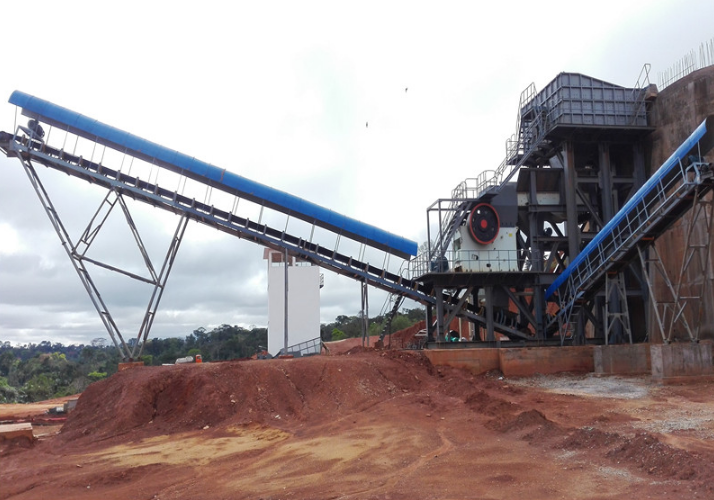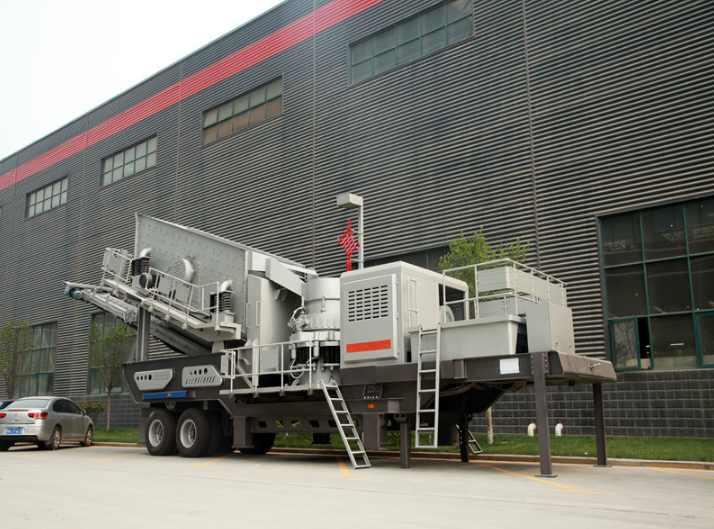Stationary Stone Crushing Plant vs. Mobile Stone Crushing Plant: A Comparative Analysis
In the world of construction and mining, stone crushing plants play a crucial role in breaking down rocks and aggregates into usable materials. As technology advances, the choice between stationary and mobile stone crushing plants has become a critical decision for businesses seeking efficient and flexible crushing solutions. This article presents a comparative analysis of stationary and mobile stone crushing plants, highlighting their features, applications, benefits, and considerations.
Stationary Stone Crushing Plant
Features and Benefits:
1. Fixed Location: Stationary Stone Crushing Plant are set up at a specific location and remain in that place for an extended period. This ensures consistent production at a stable output rate.
2. High Production Capacity: Stationary plants are capable of handling large quantities of materials, making them suitable for high-demand projects.
3. Stable Operation: Due to their fixed nature, stationary plants offer stable and reliable operations with minimal variations in performance.
4. Optimized Efficiency: Stationary plants are designed for specific production needs and can be tailored to optimize crushing processes for particular materials.
Applications:
- Large construction projects
- Mining operations
- Quarrying activities
- High-demand aggregates production
Advantages:
- Ideal for long-term projects with consistent material requirements
- Suitable for operations with high production volumes
- Generally have a lower initial investment compared to mobile plants
- Possibility to integrate specialized equipment for specific crushing needs
Considerations:
- Limited mobility, which may restrict adaptability to changing site conditions
- Less flexibility in relocating the plant to new sites
- Dependent on consistent access to raw materials at the chosen location
Mobile Stone Crushing Plant
Features and Benefits:
1. Portability: Mobile Stone Crushing Plant can be easily moved from one location to another, providing flexibility to adapt to changing work sites.
2. Quick Setup: Mobile plants can be set up and operational quickly, allowing for faster response to varying demand.
3. Reduced Transport Costs: Mobile plants eliminate the need for material transportation to a fixed location, reducing costs and time.
4. Adaptability: Mobile plants can be customized with various modules and components to meet specific crushing requirements.
Applications:
- Construction projects with changing work sites
- Temporary mining operations
- Recycling applications
- Projects with short-term material needs
Advantages:
- Offers flexibility to move the plant closer to material sources or project sites
- Ideal for projects with varying material demands and changing locations
- Reduced transportation costs due to on-site crushing
- Suitable for smaller production volumes and shorter-duration projects
Considerations:
- May require more frequent maintenance due to the movement of the plant
- Initial investment costs can be higher than stationary plants
- Performance may be influenced by changing site conditions and mobility limitations
Choosing the Right Option
1. Project Duration and Scope:
If your project involves a long-term commitment to a specific location and high production volumes, a stationary plant might be the right choice. For projects with changing locations and shorter durations, a mobile plant provides better adaptability.
2. Flexibility:
Consider the extent to which you need to move your crushing operation. If your project sites vary frequently, a mobile plant offers the necessary flexibility.
3. Initial Investment and Operating Costs:
Evaluate your budget constraints and compare the initial investment and operational costs of both options.
4. Material Requirements:
The type of material you're crushing and the required output will influence the choice of plant. Stationary plants are suitable for consistent materials and high output, while mobile plants offer adaptability to varying material types.
5. Production Volume:
Choose a plant that aligns with your production goals. If you have a high production volume, a stationary plant might be more suitable.
Conclusion
The decision between a stationary and mobile stone crushing plant hinges on your project's unique needs and goals. Each option has distinct advantages and considerations. A stationary plant offers stability and optimized efficiency for long-term projects, while a mobile plant provides flexibility and adaptability for changing locations and material demands. By carefully assessing your project requirements, budget, and operational goals, you can make an informed choice that ensures efficient and effective stone crushing operations.
If you want to know more information about stationary and mobile stone crushing plant, please contact us. We will provide professional answers.
Explore [The Insider's Views](https://ru.shengmaomachine.com/contact-us/).














